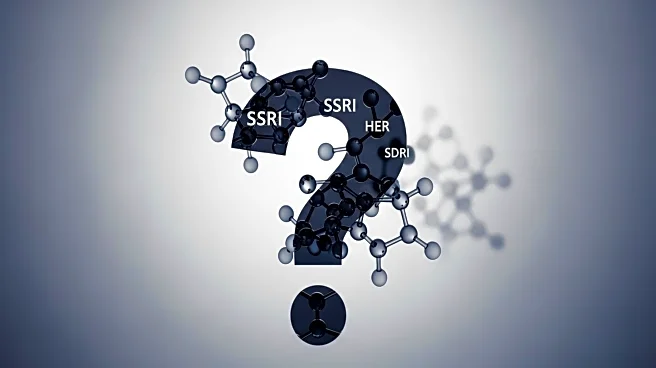What's Happening?
Robert F. Kennedy Jr., the nation's top health official, has suggested that psychiatric drugs, specifically SSRIs, may have contributed to the Minnesota Catholic school shooting. This statement has been widely criticized as lacking scientific support. Kennedy's comments have sparked controversy, with critics emphasizing that guns are a more significant factor in such incidents. Kennedy has been vocal about the potential risks of SSRIs, linking them to chronic disease in children and promoting alternative health approaches.
Why It's Important?
Kennedy's claims about SSRIs and mass shootings have significant implications for public health policy and scientific discourse. His statements may influence public perception of psychiatric medications and their role in mental health treatment. The controversy highlights the potential impact of political agendas on scientific decision-making and public trust in health authorities. The criticism from scientific experts underscores the importance of evidence-based approaches in addressing complex health issues and preventing misinformation.
Beyond the Headlines
The debate over SSRIs and their alleged link to violence raises ethical and scientific questions about the role of psychiatric medications in society. The controversy may lead to increased scrutiny of drug safety and effectiveness, influencing regulatory policies and public health strategies. The situation also highlights the need for clear communication and transparency in addressing public health concerns, ensuring that scientific evidence guides policy decisions.









